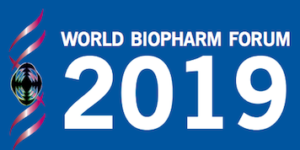
The Dish’s Weekly Biotechnology News Wrap Up – June 28, 2019
This week’s headlines include: HPV Vaccine Proving Very Successful, FDA Priority Review granted for GSK’s Zejula, Encoded Nabs $104M, Illumina’s Help, to Push Gene Therapy’s Limits, Chan Zuckerberg Initiative awards $68M for cell- and tissue-mapping seed projects, and Turning Drug Delivery Inside Out.
Podcasts:
Check out our podcast channel. We have over 30 great podcasts covering drug discovery, stem cell culture, upstream and downstream biomanufacturing and more! Click below to download from iTunes or Google play:
![]()
![]()
In Case You Missed It, Recent Articles on Cell Culture Dish and Downstream Column:
![]()
How Live Cell Analysis Technology is Meeting the Needs of Ever Evolving Advanced Cell Models
In this podcast and accompanying article, we interviewed Dr. Kimberly Wicklund, Head of Product Management for the IncuCyte® at Sartorius about how live cell analysis is meeting the needs of advanced cell models and how the launch of the new IncuCyte SX1 is providing scientists more options when it comes to using live cell analysis in their workflows…
Novel single-use valve design increases efficiency and decreases risk of contamination
Risk of contamination and cross-contamination have always been and continue to be big concerns. A recent application note, “Rationale Design of Valves for Flexible Processing” discusses an area of contamination risk that has not seen significant improvements – soft parts, specifically diaphragm valves. The application note states “according to an industry survey, soft parts (valve diaphragms, o-rings, gaskets) are the number one process equipment contamination risk which can lead to batch contamination or loss. On top of that the change out of soft parts represents 50% of overall maintenance time underlining the need for solutions in this domain.” Authors went on to describe the current challenges with traditional diaphragm valves and present a single-use direct replacement alternative that increases efficiency and reduces contamination risk…
Advanced CHO Transient Expression System Provides Increased Productivity and Efficiency
Transient transfection has been used for years to quickly and cost-effectively manufacture recombinant protein. The advantage of using transient transfection is that it takes significantly less time to produce proteins when compared with the alternative of developing a genetically stable cell line. Today’s need for protein early in drug development necessitates short turnaround times for production, resulting in demands for improved efficiency and productivity…
Innovative vaccine manufacturing enables the delivery of vaccines to the developing world
In this podcast and accompanying article, we interviewed Dr. Alex Chatel, Product Manager, Viral Applications, Univercells about the biggest challenges facing vaccine manufacturing today, why it is so difficult to manufacture and deliver vaccines to the developing world and how a novel technology with the support of the Gates Foundation is poised to address these challenges…
Innovative Chemicals for Process Intensification in Cell Culture Media
L-Tyrosine is a key amino acid for both cellular metabolism and protein synthesis and its depletion in fed-batch processes has been correlated with a drop in specific productivity1 and with protein sequence variants.2 This critical amino acid presents an extremely low solubility, especially at neutral pH.3,4 The use of tyrosine di-sodium salt concentrations above 1 g/L in feeds induces precipitation and increases the risk of media instability, mainly through co-precipitation of other amino acids. This may lead to sub-optimal performance due to insufficient supply of nutrients and finally to low performing processes…
![]()
Bioburden Control Strategies for Continuous Downstream Processing
Implementing continuous bioprocessing for biomanufacturing has been increasing in interest. As a result, questions have arisen about the implementation of this strategy for downstream processes. Of particular interest is maintaining a high degree of bioburden control in continuous downstream process. While bioburden control strategies for continuous processing focus on prevention, not unlike batch processing, many want to know if there are specific strategies that should be implemented with continuous bioprocessing that are different than those used in batch processing…
Cool Tool – Innovative sorbents enable a robust and streamlined protein purification process
Monoclonal antibodies have long been purified using a platform approach. This platform mainly consists of three chromatography steps. These include a Protein A based affinity chromatography step followed by polishing steps. The purpose of the affinity chromatography is to capture the mAb, while the polishing steps remove any remaining impurities, such as residual DNA, host cell proteins, viruses and aggregates. There are options in the selected polishing steps, but often they involve cation exchange or hydrophobic interaction. Increasingly membrane chromatography is being used as a polishing step to remove any remaining contaminants…
Optimizing mAb Purification with Highly Selective Mixed-mode Cation Exchange Sorbent
In today’s market, mAbs are produced for several therapeutic applications, yet they are not a homogeneous family of products. Each mAb is unique, based on its isoelectric point, hydrophobicity and ability to aggregate; the contaminant HCP content is also process-dependent. As drug manufacturers seek to produce mAbs for various application, they are also looking to streamline processes for efficiency and quality…
Scalable Protein A Chromatography for High-Throughput Process Development
Process development is a critical part of biomanufacturing, but it can be very time and resource intensive. With recent industry initiatives around speed to market, process development is an area that could really benefit from high throughput solutions. One high-throughput process development tool for chromatography is the use of 96-well plates. These plate platforms permit automated screening of large numbers of conditions very efficiently and use only a small amount of material for testing. This platform is great for screening but requires bridging experiments to translate results to process scale. In addition, automating the 96-well process requires investment in liquid handling equipment in order to reach the full potential of the platform…
Utilizing High-Throughput Process Development Tools to Create a Purification Process for a Biosimilar Molecule
Biosimilar molecules have some unique manufacturing requirements that must be taken into account when planning process development. The requirements for process development typically require a good deal of selectivity, cost-efficiency and the need to meet aggressive timelines. These lend themselves to a process development approach that incorporates high throughput…
Conferences:
Driving Value Through Intensified Bioprocessing
Attendees will benefit from learning about the current state-of-the-art advancements in continuous manufacturing and also learn about the successful organizations that are developing these methods in-house through the industrial case studies and workshops. Together we will drive change, innovate growth and pioneer smarter technologies to ensure they reach their full potential.
World ADC San Diego
With the next ADC approval in touching distance, the ADC field is on the edge of their seats to hear when the next exciting announcement will be. With new collaborations and important results constantly being shared, it’s safe to say the field is ever-evolving. However, despite the excitement we continue to face roadblocks with off-target toxicity, ensuring a robust supply chain and maximizing the clinical therapeutic window of an ADCs. Designed with Pfizer, Seattle Genetics, Genentech and ImmunoGen this leading…
Headlines:
“HPV Vaccine Proving Very Successful,” The New York Times
“The vaccine against HPV, introduced in 2006, appears to be very successful in preventing cancer in real-world circumstances. HPV, or human papilloma virus, is a common sexually transmitted disease, and while most cases are harmless, some types of the virus can cause genital warts and cancer. Researchers reviewed 40 studies of HPV infection in 14 high-income countries, with data from more than 60 million people followed for up to eight years after vaccination. The study is in The Lancet. They found that the prevalence of HPV 16 and 18, which cause most cases of cervical cancer, decreased over the period by 83 percent among girls ages 13 to 19, and by 66 percent among women 20 to 24. Infection with three other high-risk types, 31, 33 and 45, decreased 54 percent among girls 13 to 19…”
“FDA Priority Review granted for GSK’s Zejula,” PharmaTimes Online
“The US Food and Drug Administration (FDA) has accepted Glaxo Smith Kline’s application for Zejula (niraparib) in late stage ovarian cancer with priority review. The company announced that Tesaro, an oncology-focused business acquired by GSK, submitted a supplemental New Drug Application (sNDA) to the governing body, with an expected action date of 24 October 2019…”
“Encoded Nabs $104M, Illumina’s Help, to Push Gene Therapy’s Limits,” Xconomy
“Despite the progress of gene therapy—a cutting edge medicine promising long-lasting effects from a single treatment—it remains a crude and limited tool. Startup Encoded Therapeutics has raised $104 million to join the race to expand gene therapy’s reach. The South San Francisco, CA, company has emerged from the startup accelerator of Illumina (NASDAQ: ILMN), and it counts the DNA sequencing giant among its investors along with Arch Venture Partners, Venrock, and others. The $104 million haul it closed today brings its total funding to $158 million and will back human tests of a gene therapy for a rare form of epilepsy called Dravet syndrome…”
“Chan Zuckerberg Initiative awards $68M for cell- and tissue-mapping seed projects,” FierceBiotech
“The Chan Zuckerberg Initiative has set aside $68 million in grants for more than three dozen seed projects to support the international effort to map out the workings of every type of cell in the human body. The global Human Cell Atlas project, which began its work in 2016, aims to catalog each cell’s numbers, locations, relationships and molecular components for use as a public reference to better understand the mechanisms of disease…”
“Turning Drug Delivery Inside Out,” Genetic Engineering News
“David Giljohann, PhD, CEO of Exicure, thought that he had made a mistake during his first year of graduate school when the controls he ran with his experiments gave some unexpected results. As he tells GEN, “a prepared mind favors following up on erroneous results.” Those data showed how well spherical nucleic acids (SNAs) go into cells on their own, and became the foundation of Exicure—a biotech company that is hoping to change the way nucleic acids are delivered into cells…”

